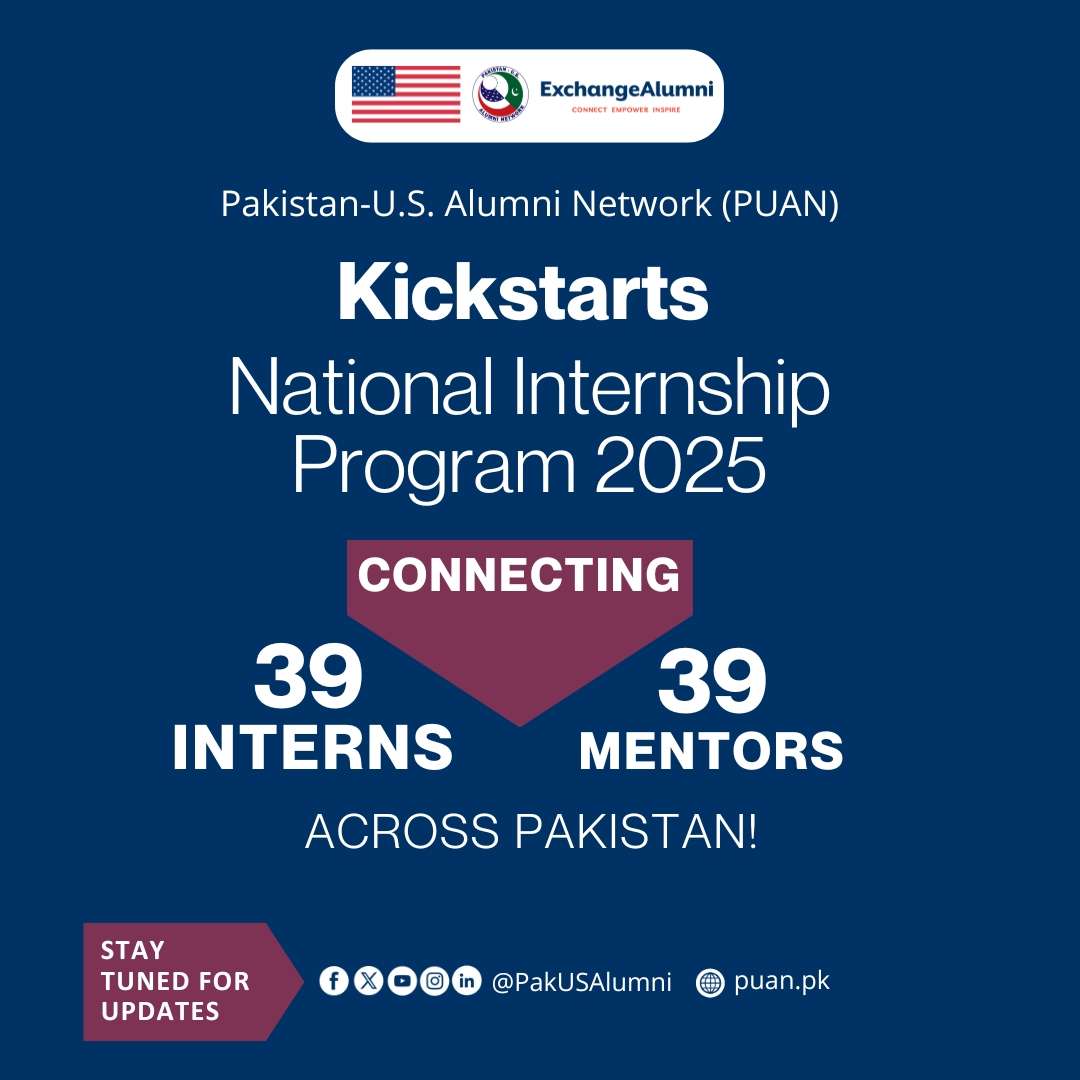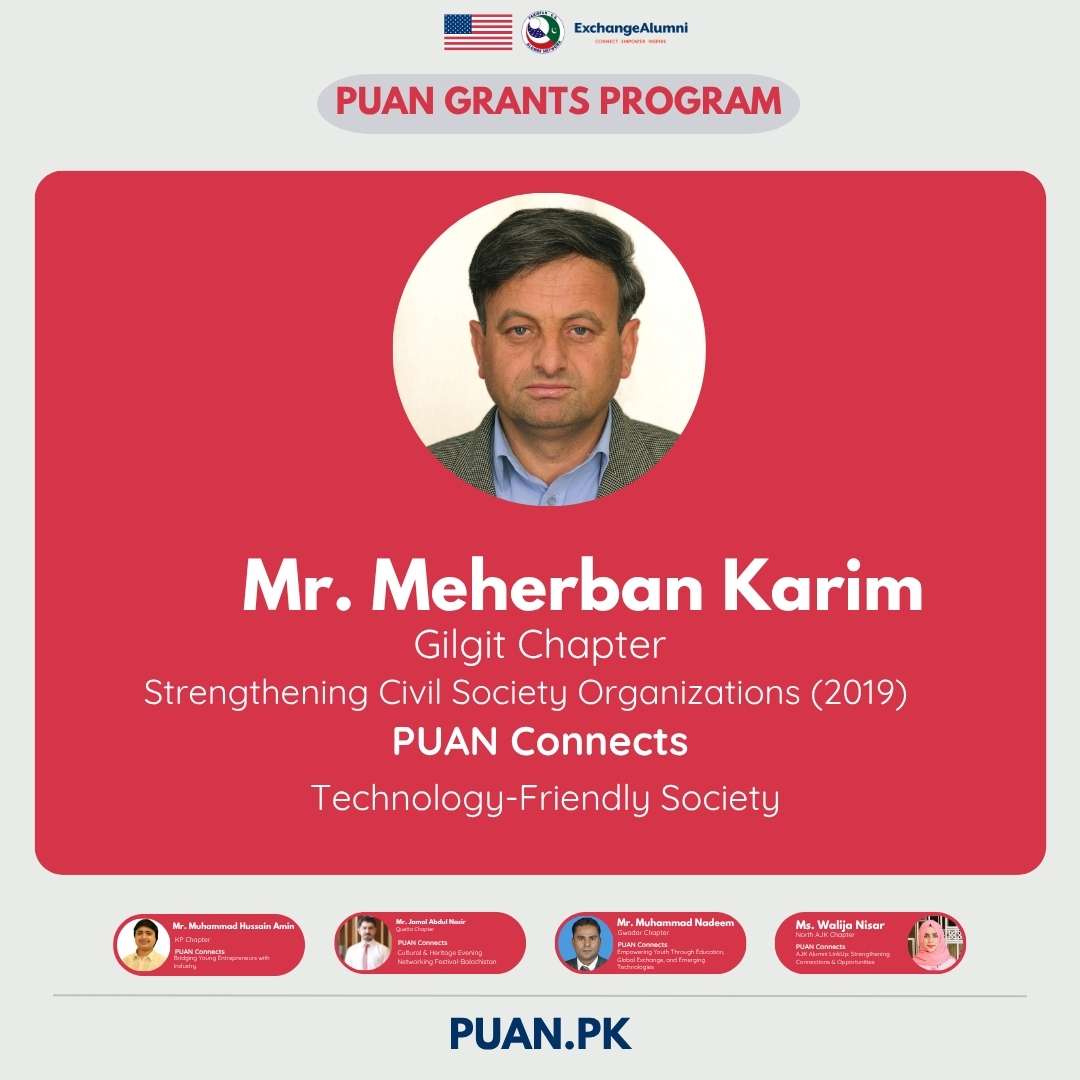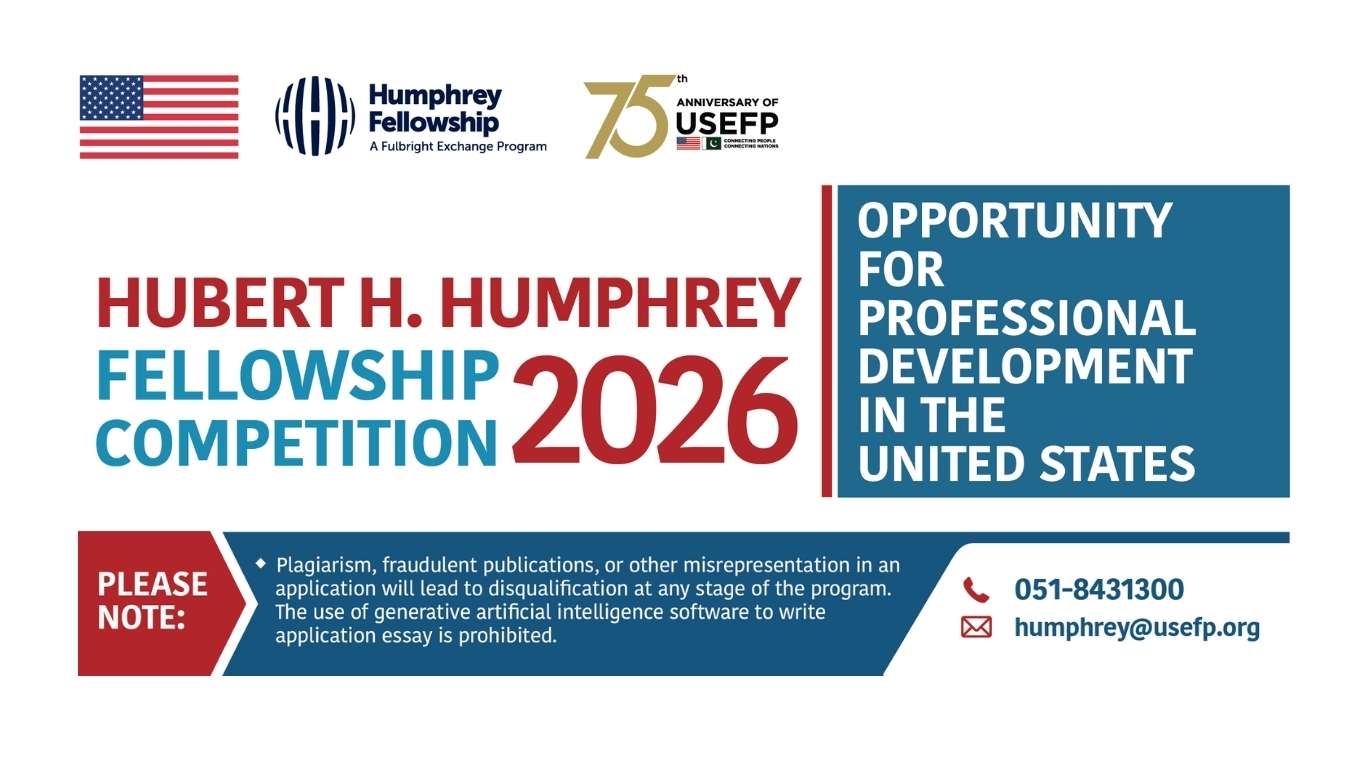The weight of empty grocery bags will always seem heavier than usual for anyone who has got a green heart and wants to do something for the ever-rising heaps of plastic. On the other hand, with skyrocketing prices, the usual abundance of fresh vegetables seem to be shrinking in comparison to demand and supply. With a similar rationale in mind, Professor Dr. Syed Habib Ali Bokhari, a Fulbright scholar and the Vice Chancellor of Kohsar University Murree, led an initiative of transforming this waste into a source of life for the community. Supported by U.S. Mission to Pakistan in partnership with Pakistan-U.S. Alumni Network (PUAN), the Alumni Small Grant (ASG) titled, “Green Feathers and Fertile Earth” has gone beyond waste management as it is building a sustainable future.
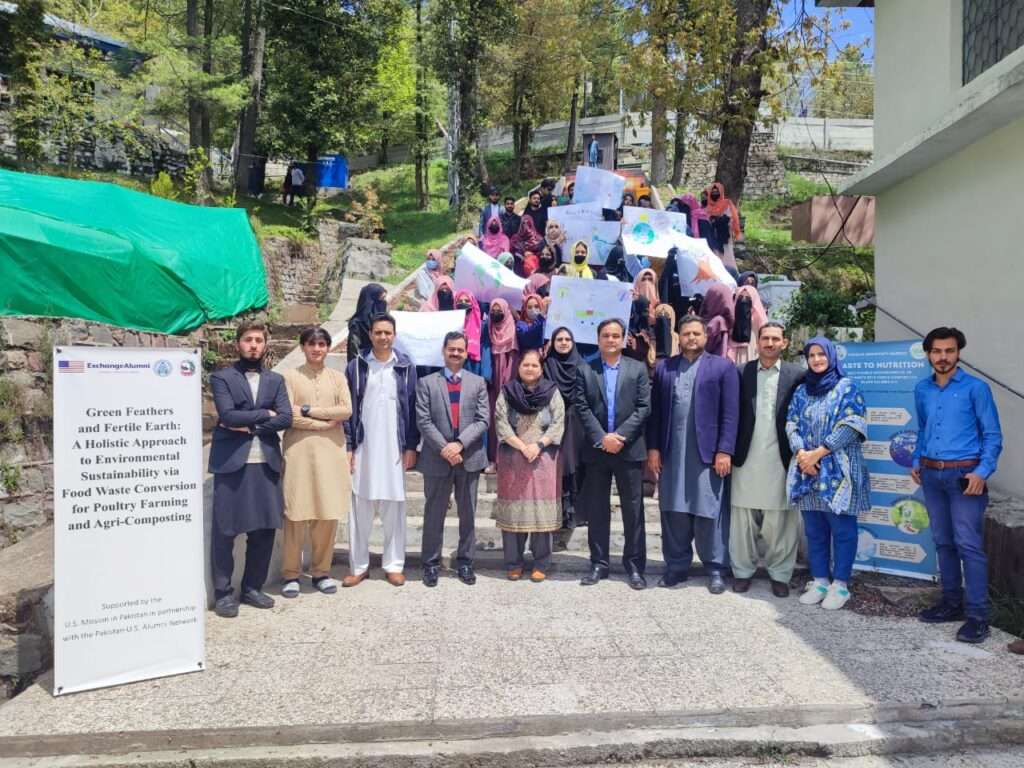
The ASG project tackled the growing issue of waste, especially in Murree’s low-income areas. Imagine a system where waste is meticulously collected and separated. But here’s the innovation: food scraps aren’t seen as a burden, but as a valuable resource! Through clever processing systems, this waste is transformed into nutritious poultry feed. This not only reduces landfill waste but also provides a cost-effective and sustainable solution for local poultry farmers.
Dr. Bokhari understands that long-term change requires more than technology. Education is a cornerstone of the project. Extensive training sessions are conducted for students of all ages, from schools to universities. These sessions extend beyond classrooms, including hotel janitorial staff and tour guides. This ensures that the sustainable practices are woven into the fabric of the community. Participants of his workshops also learnt the importance of waste segregation, composting techniques, and eco-friendly habits – knowledge that empowers them to become agents of change.
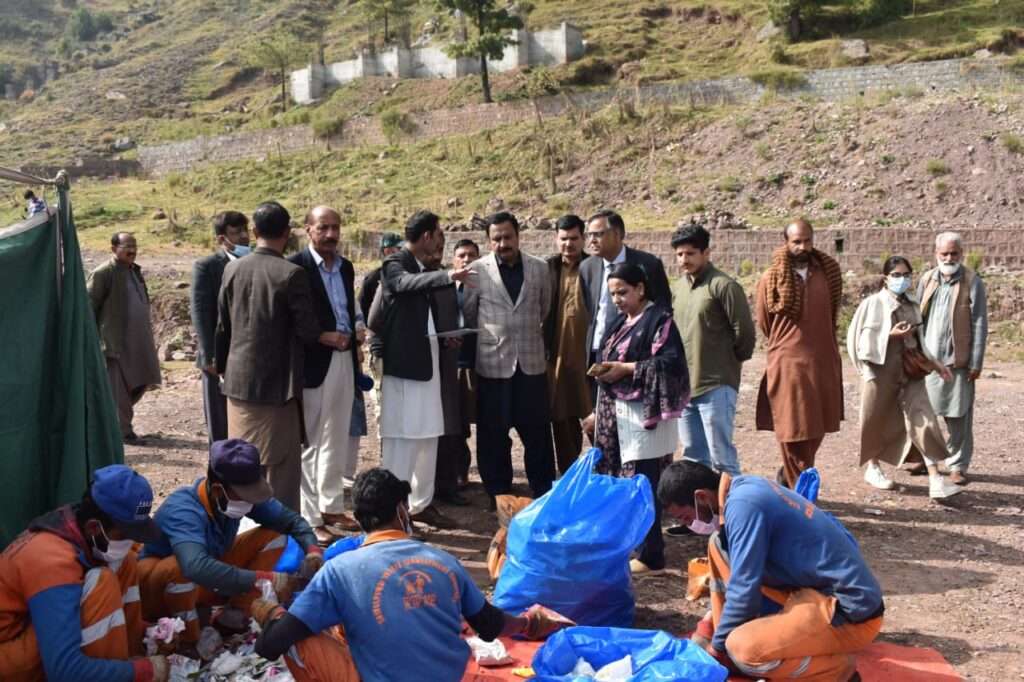
The project’s impact goes far beyond waste reduction. A state-of-the-art composting facility has been established under this ASG project, transforming organic waste into a goldmine for local agriculture. This high-quality fertilizer will not only boosts crop yields but also empowers farmers by offering a readily available and cost-effective alternative to chemical fertilizers.
Sustainability takes on a new meaning with the project’s flourishing kitchen garden. This vibrant space serves as a living classroom, showcasing best practices for eco-friendly gardening. Residents can learn (in fact are learning already) how to grow their own food using organic methods, reducing reliance on commercially produced vegetables and promoting self-sufficiency. However, the project doesn’t stop there. The introduction of beekeeping adds another layer of ecological balance. By promoting pollination, these busy bees not only contribute to a healthy ecosystem, but also produce delicious honey – a sweet reward for the community’s commitment to environmental responsibility.
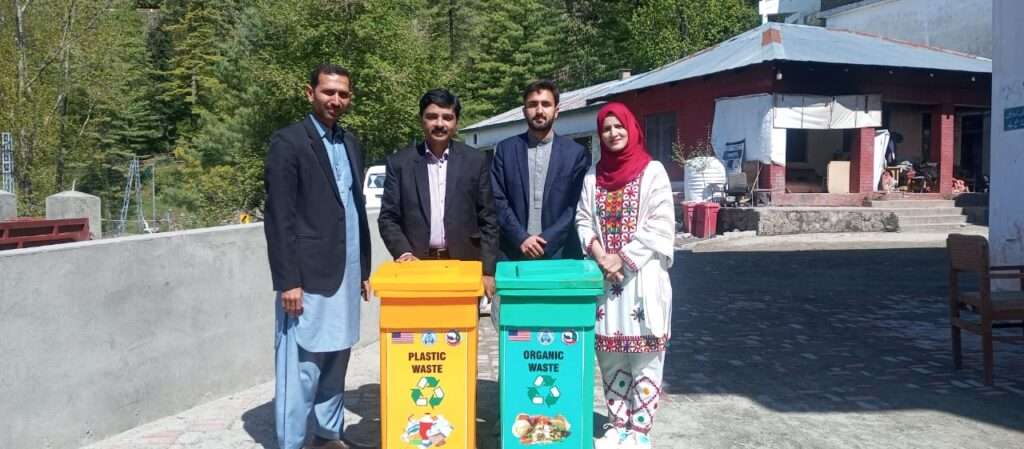
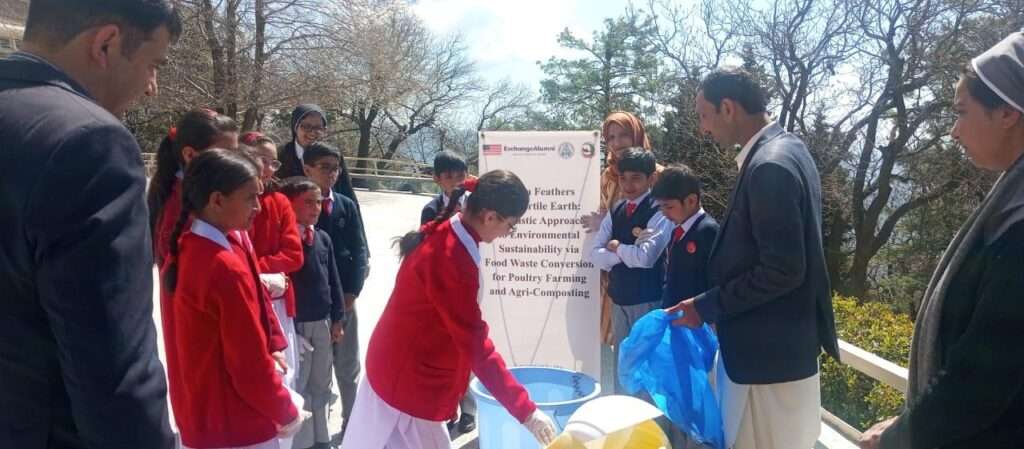
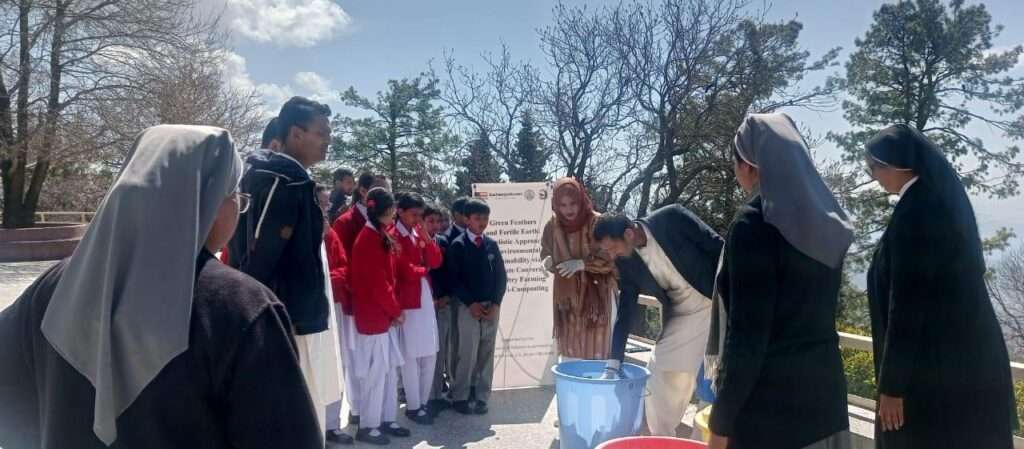
The project’s impact resonates deeply with Murree’s residents. Muhammad Sajid, a local resident, shares, “This project has completely changed our perspective on waste. We’ve learned how to turn it into something valuable, like poultry feed. The training sessions have equipped us with the knowledge and skills to be more sustainable in our daily lives. This will benefit not only us, but also future generations.”
Furqan Abbas, another resident, echoes this sentiment. “The composting facility is a game-changer for our farms! We can now produce high-quality fertilizer, leading to increased productivity and a more secure future for our families. The project has enriched our lives by teaching us sustainable practices and improving our overall well-being.”
The ASG project in true sense demonstrates that how a community can come together to tackle environmental challenges. With a renewed focus on sustainability and empowered individuals, Kohsar University Murree is leading the charge towards a greener future. This project is just the beginning which believes in the power of innovation, collaboration, and a shared commitment to building a healthier planet for all.


